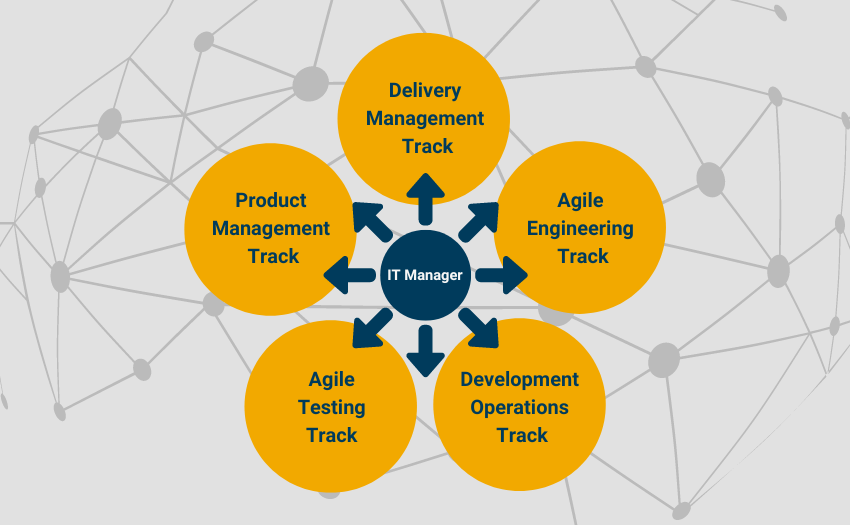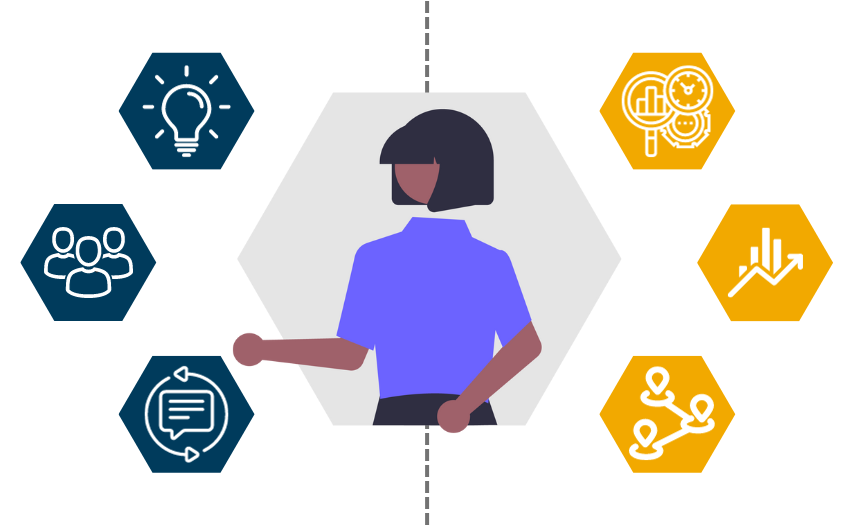Some professionals believe that they can rely solely on their existing knowledge once they reach a management position. However, in reality, continuous learning is a key aspect of holding a leadership role, and this rings especially true for IT managers.
Technology continues to change rapidly as virtual reality, automation, and artificial intelligence are making a mark on society. Because of this, IT departments are cross-collaborating more than ever with other teams, and IT managers must continuously build upon their knowledge to keep up. Learning while juggling a full-time career can be a hassle, but ICAgile students enjoy our certification courses as an option that is both flexible and reputable.
We combed through our course offerings and hand-picked five learning tracks across various technology specialties–from product management to development operations–that will enhance your knowledge of the tech industry and build a shared understanding that enhances cross-collaboration.
This article explores the ICAgile courses most relevant to IT managers on their agile journeys.







